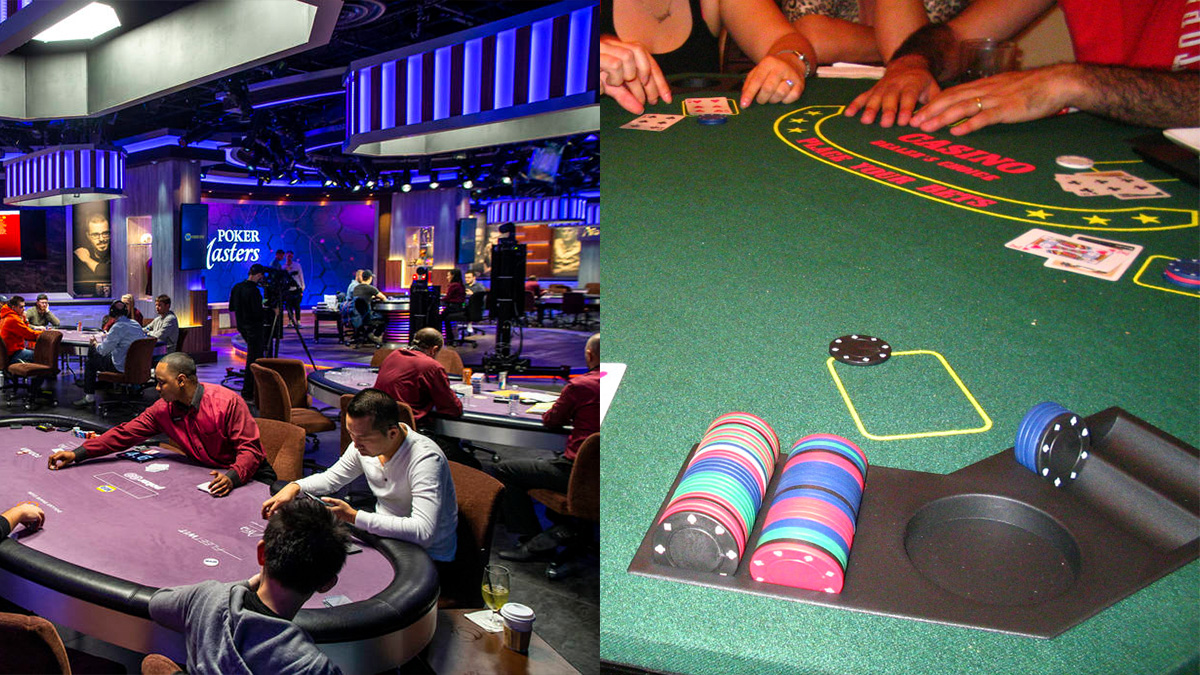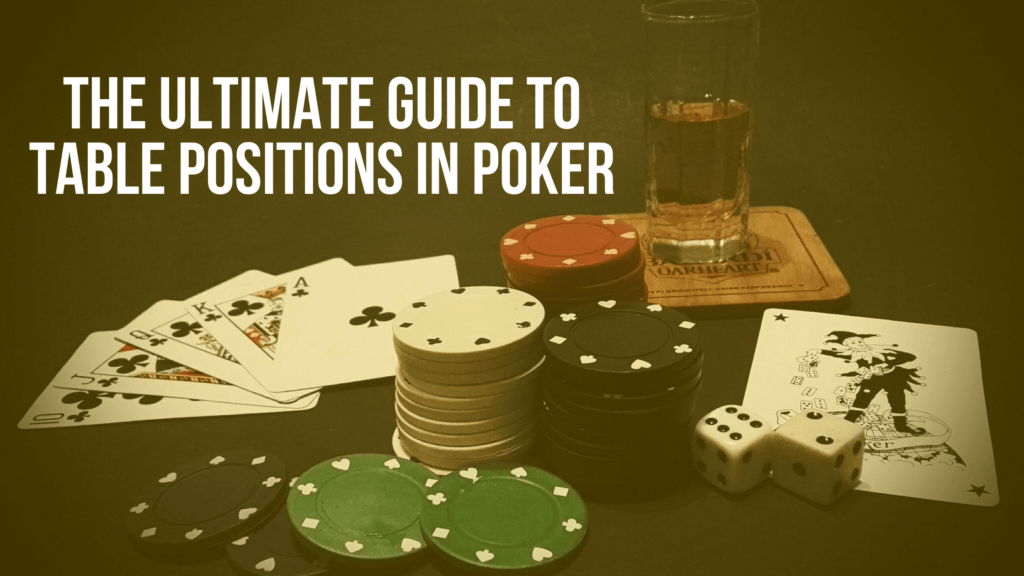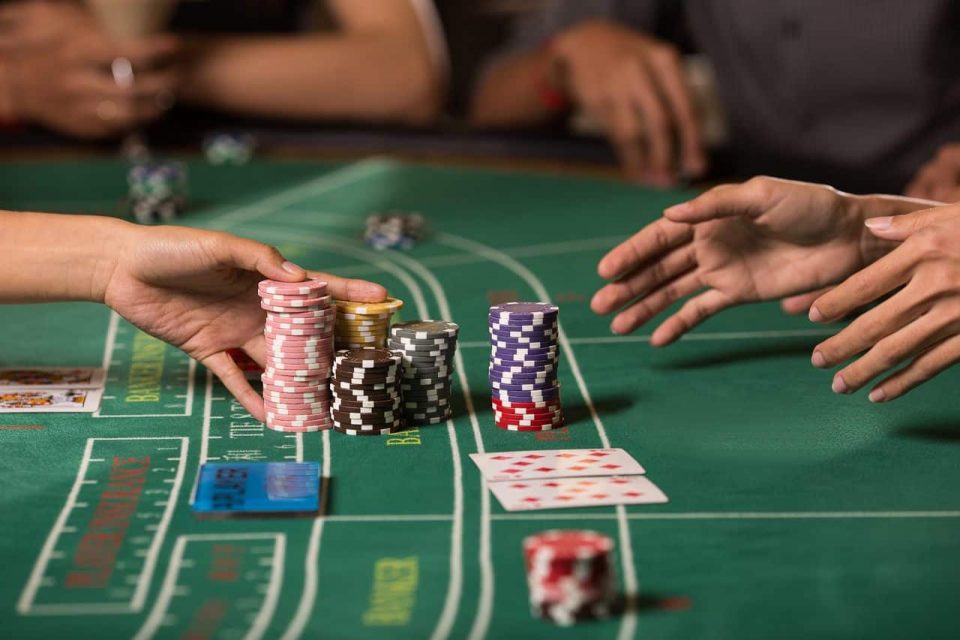How To Leave A Poker Table
- How To Leave A Blackjack Table
- Can You Leave A Poker Table Anytime
- Can You Walk Away From A Poker Table
- Best Poker Tables
- How To Leave A Poker Table
- How To Leave A Table On Sky Poker
If you are interested to get the best rakeback deals and private promotions on poker sites head on to PokerPro website (PS: there are plenty of options to choose from also for the USA players).
The poker rules are easy, straightforward, and fairly consistent as you move from one casino to another. And yet, there are instances where the rules vary, which could lead to you doing something unethical and even illegal. We’ll be discussing one question that pokers’ enthusiasts keep throwing our way, ‘Can I take money off the table?’
Most casinos will not allow you to take cash off the table until after you quit the game. The only circumstance under which you are allowed to take money off a poker table is when you are paying for the casino’s goods and services like drinks.
Like we mentioned earlier, rules vary among casinos, and it’s essential you find out what’s allowed or not. You should ask your dealer about anything you are not sure about.
Spend enough time in a poker room, and it will happen!) When a player leaves the game, other current players get first dibs on it before a new player is seated. If you want to move, just be the. The truth is that you should leave the poker table when you have played the amount of time or the number of hands that you have planned to play. You should never leave the poker table because of your results. Because your poker results from session to session is something that you cannot control. This is a simple answer though. Select & Assemble Materials. I recommend taking the extra time and cost to order swatches. In 15+ years of playing in casinos and home games, I have never encountered a rule regarding when one can leave the table. Also, in looking at Robert's Rules of Poker by Bob Ciaffone, I can find no rule regarding when one can leave a game. So, you can get up and leave a table.
Everything You Need to Know When Playing with Cash on the Table
How To Leave A Blackjack Table
Playing poker with cash and chips are totally different. Most casinos today prefer to use chips. However, when you are in a setting where actual cash is in play, there are some things you should keep in mind. And we’ll be discussing them below.
1. Rules vary
Rules about cash for poker games vary among casinos. Some casinos do not allow cash at all, while some allow you to play with literally any cash, down to $1 bills. And there are casinos where you can only play poker with $100. That’ll definitely make things easier.
You’ll have to ask your dealer about the rules of casinos before you try to play with cash.
2. Beware of bills folded up
It’s common to see poker players folding their cash and tucking it under the chips. Sometimes, the money is kept vertical and hidden behind the chip stacks. Either way, the bills are not easily foldable.
When this happens, it’s difficult for others to determine how much the player has in play. Now, some people are doing this without any ill intent. However, some players do this deliberately, so other players can underestimate the amount they have in play.
So should you notice a player having bills under or behind his/her chips, especially in a way that’s not visible to all, politely ask the dealer to arrange the cash properly.

Can You Leave A Poker Table Anytime
3. Ratholing happens more with cash
Ratholing is when players take money off a table. And by now, you should know that players can’t take money off a poker table unless they are quitting the game. Again, some people aren’t aware of this and innocently pocket a few notes after winning a pot consisting of both cash and chips.

However, some players do this deliberately to lock a profit. Pocketing a couple of notes also seems to be easier than slipping chips off the table. Should you notice, a player taking money off the table, inform the dealer.
4. People bet differently with cash
People tend to bet more conservatively with cash than chips. It’s more of a psychology thing. Chips can tend to be abstract. But holding real cash makes what you are staking more real.
Funny enough, losing chips hurt players less than losing an equivalent amount in cash. We human beings are funny creatures.
5. Dealers may not notice cash
Can You Walk Away From A Poker Table
There are times when dealers simply overlook your cash. And this happens more often when you have both cash and chips. If dealers don’t notice your cash, it won’t be included as part of your all-in-one bet.
Can you cash out of a poker game?
Cash-out in poker refers to when you decide to stop playing and have your chips converted to cash. You are free to leave whenever you feel like you’ve had enough poker during a session. And there’s no need for you to wait for a hand to end before leaving. Except you are part of the hand, of course.
While you can just pack your chips and leave, you can be a good sport and say something nice to the remaining players. Lines like “Great game, everyone”, or “Good luck, guys,” are polite and sociable. Try to be a good sport even when things don’t go your way. It’ll make you feel a bit better.
In some casinos, it’s the dealers that will cash out your chips. But it’s more common for players to pick their chips and head to the front desk or the cashier’s cage to convert them to cash.
Just like every other aspect, there’s a strategy to cashing out. Do you cash out every time you have a healthy pile of chips in front of you? Definitely not.
We’ll be discussing a step-to-step about when to cash out of a poker game.

When Should You Leave A Poker Table
The end of every poker session, whether in a casino or online, comes with the inevitable question of when to leave the poker table. Poker is a game that requires you to make the right decisions, and one of such decisions is to know when to leave and when to keep playing.
Since you cannot control the results at the end of each poker session, you should leave the table when you’ve played the number of sessions or hands you planned to play.
Plan Your Poker Session
It’s important you set a specific length of time or number of hands you will play beforehand. Now, there’s no rule about the length of time you should play, but you have to consider how long you can stay focused and motivated.
Some players prefer to set time limits and keep sessions short to keep their minds fresh to play to the best of their abilities. It’s challenging to keep track of the number of hands you’ve played when in a casino. It’ll be easier to use a time limit.
Never Leave a Really Good Game
You should always stick to your plans except on one occasion. And that’s when you have a really good game.
Not just a good game, a perfect one. And how do you have an excellent game? It happens when you are on a table with someone who’s on tilt and has been losing.
So when you encounter someone who’s a beginner or just having a bad streak, you’ll do well to take advantage of the situation. However, if you notice the tides changing against you, be sure to pack your chips and cash out.
Leave Your Poker Session if you are on Tilt
You should absolutely stop playing when you are on a tilt. And this happens when you are confused or really emotional after a streak of bad games. You start playing based on your emotions and take more risks.
Many players try to recoup all their losses, usually leads to the player losing more games. If you notice you are playing more hands than normal preflop, having a hopeless feeling of being beat in every hand, or making bad calls on the river when you know you should fold, then you are on a tilt.
Leave the game immediately! Don’t try to play through a tilt.
In my poker career, I had quite some situations where I was definitely on tilt. I refused to stop playing after being down and running bad. Every time that I continued playing while on tilt I lost a few buyins more, not once was I able to win back some of my losses.
Leaving The Poker Table For A Break
Most new poker players aren’t sure if they can leave the table for a break. They may want to use the restroom, get some fresh air, get something to eat, etc.
The casino knows how important it is for players to have a break and thus allow them to leave the table. You can leave the table when you are not part of a hand and do whatever you want.
The game continues without you. There is a limit to how long you can leave the table. For most casinos, it’s usually between 30 minutes to 1 hour. If you are gone for longer than that, you may see someone else occupying your seat.
Well, there is no need for you to worry. The casino staff will have carefully collected, counted, and bagged your chips. About three staff members will verify the value of your chips before bagging them. So you don’t have to worry about the casino cheating you. You’ll be added to a waiting list, and upon your return, you’ll be placed on the next available seat in the poker room.
Related Articles
- Can you leave a poker tournament?
- Can you take poker chips from casinos?

As the headline suggests, this series of articles is intended for people who have played poker online and/or in home games, but have little or no experience as yet playing in a “brick-and-mortar” casino. Last week, we discussed how to get yourself into a cash poker game at a casino. Today let’s talk about both keeping that seat and leaving it — which, of course, you will have to do sooner or later. These procedures do not apply to tournaments.
Two things can happen that force you to move to a different table:
1. A game may break up, in which case you’ll have to move to a different table if you want to keep playing. The poker room staff will direct you what to do if that happens.
2. When you’re first assigned to a game, it might be what’s called a “must-move” table. This happens when the poker room manager has enough players to start a second table, but isn’t sure that there will be enough players coming in to keep both of them going at healthy levels. Many cash-game players don’t like short-handed tables, so when a few people leave a game, it can trigger a cascade of exits, causing the game to die.
To protect the vigor of the first table, the newly starting one can be designated “must-move,” meaning that players will be required to move from it to fill seats in the first game as they become available.
Other than those two scenarios, you can keep your seat as long as you feel like playing.
Taking a Break

Occasionally I’ve overheard somebody new to casino poker asking the dealer if he can take a restroom break. Poker veterans may find this funny and naïve, but it’s a perfectly legitimate question — the kind of thing that everybody just sort of expects you to know, but nobody tells you!
The answer is yes — you can take a break to go to the restroom, check on your sports bets, make a phone call, hit the ATM for more cash, or walk around to calm down after a bad beat. The game will just go on without you. Of course, there’s a limit to how long they’ll hold your seat, so if your absence will be longer than 15 minutes or so, as with a dinner break, you’d better ask the dealer how long you can be gone and still claim your seat upon your return.
If you lose track of time or are unexpectedly delayed getting back, you may find somebody else where you had been sitting. Don’t panic. The poker room staff will have carefully counted, bagged, and stored your chips, so you can reclaim them.
A point of etiquette: It is considered rude to take a long dinner break, then come back, pick up your chips, and cash out for the day. You can probably see why this will earn you scorn — you have left the game short-handed for no good reason. If you had cashed out before going for dinner, other people on the waiting list could have taken your place. If you plan to return to the game, but something changes your plan, retrieve your chips and forfeit the seat as soon as possible. And it wouldn’t hurt to offer an apology to the table for having tied up that seat, so they won’t think you’re a thoughtless jerk.
Changing Seats or Tables
At some point, you may decide you’d prefer another seat at the table. This might be for strategic advantage, for more elbow room, to get a better view of the big-screen TV, or because you’re stuck next to a guy with terrible body odor. (Don’t laugh! Spend enough time in a poker room, and it will happen!)
When a player leaves the game, other current players get first dibs on it before a new player is seated. If you want to move, just be the first to speak up when a seat you want is vacated. To prevent arguments about who claimed it first, most poker rooms have a “seat change” button available. Just ask the dealer for it when you first decide you want to move. That will reserve your “right of first refusal” as seats open up. Slide it back to the dealer when you move.
By the way, the chairs around a poker table are designated by a universal standard, though they’re not marked. The first place to the dealer’s left is called “seat one,” or “the one seat,” followed clockwise by Seat 2, etc. For most games, the last seat, which is on the dealer’s right, is either Seat 9 or Seat 10. (Some poker variants, such as seven-card stud, are run with fewer than nine players so that they don’t run out of cards.) When requesting a change to a specific seat, you’ll look more knowledgeable if you ask for it by number.
Sometimes you may decide that you need not just a new seat, but a whole new table. Maybe there’s a cold draft that’s making it impossible to be comfortable, or too many chatterboxes, or unusually tough competition, or you want to join your buddy in his game. For this, you need to ask permission from the “floor person,” i.e., one of the room supervisors. They will be happy to accommodate your request when they can do so without leaving a game short-handed.
Leaving and Cashing Out
When you’ve had enough poker for one session, feel free to leave at any time. You don’t have to wait for the end of a hand (unless you’re in it), or for the button to be in a particular position. You don’t need anybody’s permission. You can just pick up your chips and walk away. However, it’s polite to say something friendly to the remaining players. Exiting lines like “Good luck, guys,” “Thanks for the game, everyone,” or “Sorry, gotta go get the kids in bed” are trite but sociable.
Best Poker Tables
If you happen to leave after losing all your chips (it happens to all of us), don’t stomp off angrily. Be a good sport, smile, and say something friendly and disarming. It will make you feel better about the loss to have been able to keep your composure.
How To Leave A Poker Table
In a few places, the dealer will cash out your chips. It’s much more common, however, for you to have to take them to the front desk or the cashier’s cage for the exchange. Unless you have just a few, don’t try carrying them in your hands. They’re more slippery than they look, and it creates a big mess and embarrassing disruption if you accidentally drop them all over the floor. Ask for a chip rack to carry them in — or just help yourself to a rack if you see one lying around. They are often on empty tables, or on the floor under the table, or in stacks near the cashier.
How To Leave A Table On Sky Poker
Many casinos give you credit towards some sort of rewards program for your hours of play. It’s usually worth asking the poker room staff to get you a player’s card when you first arrive, if you don’t already have one. You may get swiped in at the front desk or at the table. If the latter, the dealer will automatically stop the clock on your play when you leave, but if the former, you’ll have to remember to have somebody swipe your card on your way out, or you won’t be given credit for those hours.
Next time we’ll talk about the play of your first few hands, and the mysteries of the moving dealer button.
Robert Woolley lives in Asheville, NC. He spent several years in Las Vegas and chronicled his life in poker on the “Poker Grump” blog.
Get all the latest PokerNews updates on your social media outlets. Follow us on Twitter and find us on both Facebook and Google+!
Tags
cash game strategylive casino pokerbeginner strategyrulesetiquette